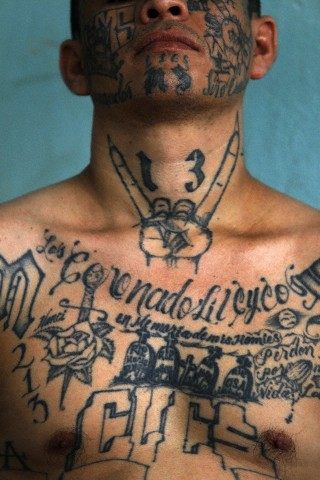A recent statement released by the federal government acknowledged that street gangs in the U.S. work as hired foot soldiers for Mexican and Central American transnational criminal organizations. The revelation was made by U.S. law enforcement after a massive national raid that netted 976 gang members and associates.
Earlier this week, U.S. Homeland Security Investigations completed a six-week long nationwide gang sweep that targeted almost 1,000 members of many well-known street gangs, Breitbart Texas reported. As part of the raid, HSI acknowledges something that several other law enforcement agencies have tried to ignore, the fact that street gangs in the U.S. work for many different transnational gangs and other criminal organizations.
The operation targeted transnational criminal gangs and others associated with transnational criminal activity, HSI said in their news release. Transnational criminal organization is the word used by law enforcement agencies in the U.S. to refer to drug cartels and crime syndicates worldwide.
“HSI leverages its worldwide presence and expansive statutory and civil enforcement authorities to mitigate the threats posted by these global networks, often through the tracing and seizing of cash, weapons and other illicit proceeds,” the news release revealed.
A series of federal court records that Breitbart Texas has researched to point to a counter-intuitive but close working relation between the Aryan Brotherhood and the Gulf Cartel with the street gang profiting from drug distribution and carrying out contract muscle work for the cartel.
As previously reported by Breitbart Texas, in July 2014, a member of the Texas Syndicate who was later identified as a close associate of the Gulf Cartel engaged authorities in shootout lasting several hours in the border city of La Joya. Two police officers were shot during the firefight where more than 500 rounds were fired, authorities said at the time. Officers had been trying to arrest Joaquin Cibriam from the Texas Syndicate who also went by the name of “El Cruzador Perron” and worked as a drug distributor for the Gulf Cartel in connection with the execution of a 19-year-old Mexican man in the border city of Edinburg over a drug deal that went horribly wrong.
Gangs such as the Surenos, the Mexican Mafia, and the Tangos have a long history of trafficking and at times doing contract hit work for Mexican drug traffickers. The do this without any specific alliance working with Los Zetas, the Gulf Cartel and other Mexican crime syndicates.
While not mentioned in the press release about the raid, along the Texas border, a gang known as the Partido Revolucionario Mexicano (PRM) has a long history of doing contract murders and kidnappings for the Gulf Cartel. In October 2012, a squad of PRM members had been kidnapping drug smugglers in Hidalgo County in an effort to recover a large drug shipment that had been stolen from the Gulf Cartel. During a traffic stop, one of the PRM gunmen used an Uzi-like pistol to shoot, multiple times, an Hidalgo County Sheriff’s Deputy, and tried to shoot his partner in a fierce firefight. The gunman died as the two deputies fought back.
In 2013 a Gulf Cartel enforcer and a PRM member was sentenced to 5-years in prison for on the charge of being an alien in possession of a firearm, a news release by U.S. Immigrations and Custom Enforcement revealed. Luis Ivan Nino Duenes had been one of the top enforcers for the Gulf Cartel’s Regional Boss Jose-Luis “Comandante Wicho or XW” Zuniga. He helped Zuinga flee to the U.S. in 2011 to escape a fierce firefight in Mexico. Both men were arrested in Texas. During his trial, prosecutors showed evidence that once in jail in the U.S. Nino Duenes had joined the PRM and had tried to intimidate a witness. At the time of his sentencing a U.S. federal judge noted that Nino-Duenes actions were the prime example of spillover crime.

COMMENTS
Please let us know if you're having issues with commenting.